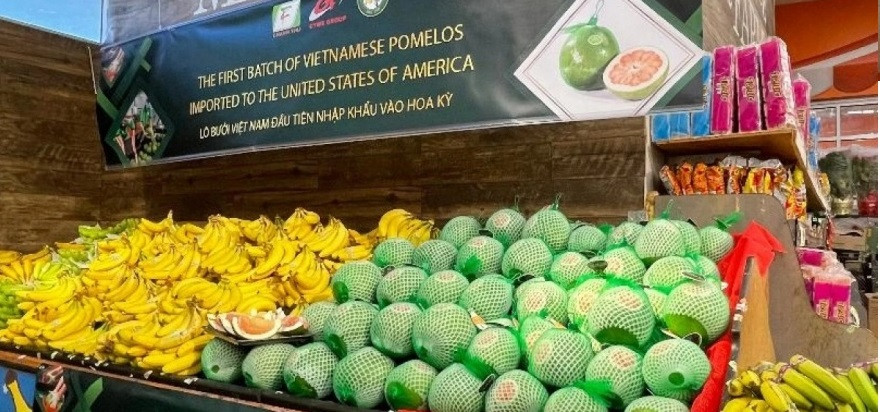
Nikkei Asia reported that for the first time since 2006, the US was no longer China’s largest export market last year. The newswire cited data compiled by the US Department of Commerce stating that Chinese exports to this market decreased by 20% from January to November in 2023 compared to the same period from 2022. Meanwhile, despite enduring a slight fall, exports from ASEAN remained high, increasing by double compared to the previous 10 years.
In fact, according to Nikkei Asia, the US has been deploying a policy of purchasing products from other countries in a bid to reduce its reliance on the Chinese market. Statistics indicate that smartphone exports from China to the US have decreased by 10%, while smartphone imports from India have increased fivefold, and laptop imports from the Vietnamese market have also climbed four times.
These represents extremely positive signals for goods from Vietnam, said Assoc. Prof. Dr. Nguyen Thuong Lang, an economic expert from the National Economics University.
In his analysis, the country boasts many products similar to Chinese goods exported to the US. Along with the shift of production lines from the Chinese market in recent years, Vietnamese products have a great advantage following the recent lifting of Vietnam-US relations to that of a comprehensive strategic partnership. The US is therefore eying Vietnam in many important fields such as digital infrastructure, energy, logistics, and especially semiconductor manufacturing.
This is a great opportunity for the country, and businesses and policymakers need to pay close attention to introduce viable solutions to increase the turnover of high value-added goods into this lucrative market, said Prof. Lang.
However, experts raised questions regarding an increase in Chinese investments into the Vietnamese market over recent times. The General Statistics Office indicated that both Hong Kong (China) and China ranked third and fourth among foreign investors in Vietnam last year. Indeed, Hong Kong (China) alone registered to pour nearly US$4.7 billion into the country, accounting for 12.8% of the foreign direct investment capital attracted during the year. China also made up 22.2% of the total number of FDI projects foreign investors registered.
Marketing expert Vu Quoc Chinh said that such an increase in Chinese investments has helped Vietnam to attract more foreign investment, export more products, and create jobs. However, he warned that Chinese products may follow investors into the Vietnamese market and only engage in the final processing step before being shipped to the US. The expert therefore suggested that the country keep a tight rein on the recognition of the traceability of goods in a bid to ensure the authenticity of Vietnamese exports to the US.
Sharing this perspective, Assoc. Prof. Dr. Nguyen Thuong Lang pointed out that there is an increase in the number of Vietnamese products exported to the US which are subject to trade defence instruments. He agreed that early warnings and remote prevention are needed in an attempt to retain the commercial reputation of and protect Vietnamese goods in major markets, including the US.
The Ministry of Industry and Trade reported that Vietnamese export products faced more cases of investigation and application of trade defense measures by foreign countries last year. The number of cases of applying trade remedies to Vietnamese exports increased by 3.5 times to 172 in the 2012 - 2022 period from just 50 in the 2001 - 2011 period.
Source: VOV